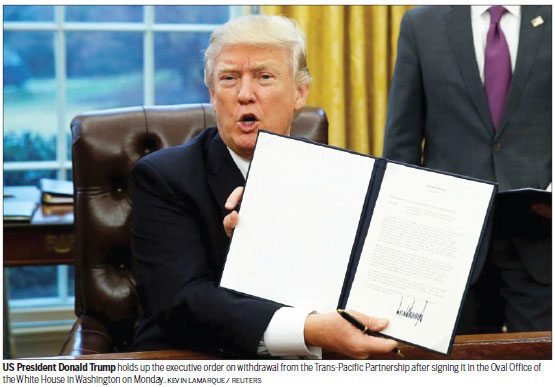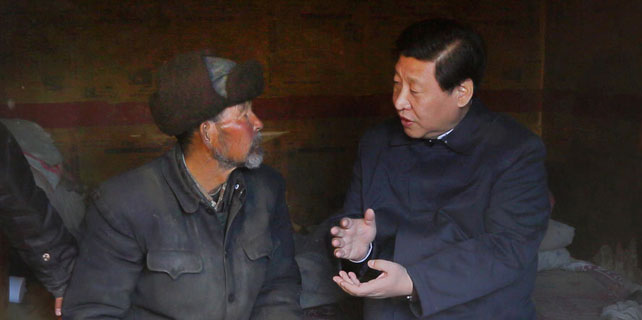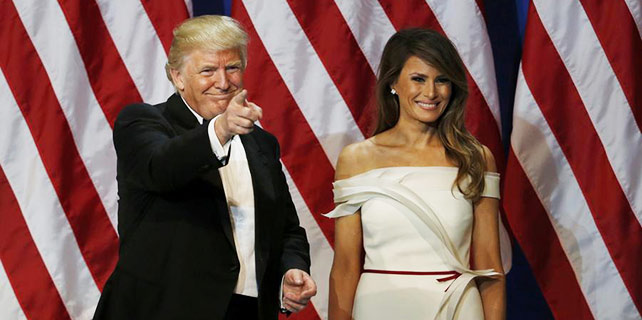Trump removes US from the TPP

US President Donald Trump signed an executive order on Monday to withdraw the United States from the Trans-Pacific Partnership (TPP), a trade agreement that his predecessor Barack Obama had hoped to become his legacy.
Trump signed the order in the Oval Office after meeting in the Roosevelt Room with US business leaders to talk about American manufacturing industry.
Sean Spicer, the new White House press secretary, argued on Monday that the US will gain more from a bilateral trade agreement than a multilateral agreement. "This is not a deal that was in our country's best interest," he told the daily briefing on Monday.
Wilbur Ross, Trump's nominee for commerce secretary, made the same argument in his confirmation hearing in the Senate last week.
Spicer emphasized the symbolism of the executive order, calling it "symbolic both here in America and around the world of a new era of trade policy", a policy he said would put American workers first and foremost and one that assures the world that the way the US negotiates bilateral agreements is to ensure that the US gets something out of the deals.
TPP was signed in February 2016 by the US and 11 other Pacific Rim economies. Obama had hoped that the US Congress would ratify the agreement during the lame-duck session after the Nov 8 presidential election, but it never got the chance.
Trump had called the TPP a "horrible deal" on the campaign trail. The other presidential candidates in the 2016 election, Republican Ted Cruz and Democrats Hillary Clinton and Bernie Sanders, also opposed TPP during the campaign. Most Democratic lawmakers also oppose TPP.
David Dollar, a senior fellow at the John L. Thornton China Center of the Brookings Institute, said Trump's withdrawal from TPP signals a turning away from Asia.
"The other countries in the TPP agreement are likely to proceed without the US. There is an opportunity for China if it is ready to open up its own economy more," Dollar, who had previously worked for the US Treasury and the World Bank, told China Daily on Monday.
Gary Clyde Hufbauer, senior fellow at the Peterson Institute for International Economics, described Trump's executive order to withdraw from TPP as "more symbol than anything new".
"Because the TPP was never submitted to Congress, so (it) was not going to go anyplace anyway. But it was a strong symbol," said Hufbauer, deputy assistant secretary for international trade and investment policy at the US Treasury (1977-79).
TPP was an important component of the Rebalance to Asia strategy pursued by the Obama administration to curtail China's growing influence in the region, where China is the largest trade partner for most nations. Obama had consistently used the geopolitical argument to sell the controversial TPP, saying repeatedly in national speeches that "the United States, not countries like China, should write" trade rules.
On Jan 13, just a week before leaving office, Michael Froman, US trade representative under Obama, described TPP as "not to contain China".
But he quickly said withdrawing from TPP would be a huge gift to China in terms of damaging the US role in the region.
"And I can't understand why any president or administration would want to hand the keys of the castle over to China to say it's better that China set the rules for this region rather than the United States. I think that would have very damaging consequences."
US economists, such as Derek Scissors of the American Enterprise Institute, believe the economic benefits of TPP to the US are limited.
China is not a party to the 12-economy TPP agreement. Most Chinese at first regarded TPP as part of a US containment strategy. But the Chinese government later expressed interest in the agreement.
China has been pushing the Regional Comprehensive Economic Partnership (RCEP), a free trade deal between 10 ASEAN nations and six other countries, including China. The US is not a participant in RCEP negotiations.
He Yafei, a former vice-foreign minister, earlier described TPP as "both a challenge and opportunity for China, as it comes at a critical moment when China tries to engage more deeply and widely in global governance".
"The potential short-term impact of the TPP on China's trade and economy as a whole is almost negligible, while the medium- and long-term impact depends on how China reacts to the TPP and handles its economic 'new normal.' The TPP could even provide impetus for China's efforts to deepen its economic reforms," He wrote.
chenweihua@chinadailyusa.com
















